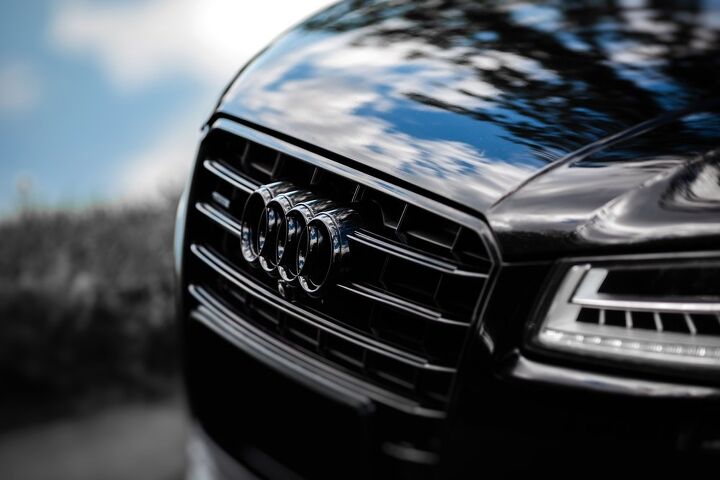Dieselgate Resurgence: Ex-Audi CEO Faces Conviction in German Regulation Scandal

Reports have emerged in Germany that former Audi CEO Rupert Stadler is about to become the upper-echelon automotive executive convicted in the diesel emissions fiasco perpetrated by Volkswagen Group. A Munich court issued a preliminary assessment on Tuesday, stating that an accusation of fraud had been substantiated.
With the corporate scandal first emerging in 2015, Stadler and a handful of German engineers weren’t formally charged until 2020. Though Audi had almost immediately confessed to cheating on emissions tests when news of the situation ( often referenced as “Dieselgate”) went global.
According to Reuters, Judge Stefan Weickert had indicated that Stadler, former Audi executive Wolfgang Hatz, and engineer Giovanni Pamio could even face prison sentences which he would only consider suspending if they offered a full confession. There is also a fourth defendant in the case. However, the court had said it did not see any substantial evidence indicating a crime had been committed.
Under German law, the maximum sentence for fraud would be 10 years in prison. But that presumes the defendants would be proven guilty of egregious levels of corporate malice.
From Reuters:
The trial is one of the most prominent court proceedings in the aftermath of the diesel scandal at Volkswagen and its subsidiary Audi. Revelations that millions of emissions tests had been manipulated emerged in September 2015.
According to prosecutors, the three engineers manipulated engines in such a way that they complied with legal exhaust emission values on the test bench but not on the road. Stadler is accused of failing to stop the sale of the manipulated cars after the scandal became known.
The court said it saw no evidence substantiating the other charges against the defendants - indirect involvement in falsification of documents and false advertising tied to illegal pollution levels in its cars.
A verdict is expected in the coming months, with the court then having to decide the appropriate punishment.
[Image: ANAID studio/Shutterstock]
Become a TTAC insider. Get the latest news, features, TTAC takes, and everything else that gets to the truth about cars first by subscribing to our newsletter.

A staunch consumer advocate tracking industry trends and regulation. Before joining TTAC, Matt spent a decade working for marketing and research firms based in NYC. Clients included several of the world’s largest automakers, global tire brands, and aftermarket part suppliers. Dissatisfied with the corporate world and resentful of having to wear suits everyday, he pivoted to writing about cars. Since then, that man has become an ardent supporter of the right-to-repair movement, been interviewed on the auto industry by national radio broadcasts, driven more rental cars than anyone ever should, participated in amateur rallying events, and received the requisite minimum training as sanctioned by the SCCA. Handy with a wrench, Matt grew up surrounded by Detroit auto workers and managed to get a pizza delivery job before he was legally eligible. He later found himself driving box trucks through Manhattan, guaranteeing future sympathy for actual truckers. He continues to conduct research pertaining to the automotive sector as an independent contractor and has since moved back to his native Michigan, closer to where the cars are born. A contrarian, Matt claims to prefer understeer — stating that front and all-wheel drive vehicles cater best to his driving style.
More by Matt Posky
Latest Car Reviews
Read moreLatest Product Reviews
Read moreRecent Comments
- GregLocock Car companies can only really sell cars that people who are new car buyers will pay a profitable price for. As it turns out fewer and fewer new car buyers want sedans. Large sedans can be nice to drive, certainly, but the number of new car buyers (the only ones that matter in this discussion) are prepared to sacrifice steering and handling for more obvious things like passenger and cargo space, or even some attempt at off roading. We know US new car buyers don't really care about handling because they fell for FWD in large cars.
- Slavuta Why is everybody sweating? Like sedans? - go buy one. Better - 2. Let CRV/RAV rust on the dealer lot. I have 3 sedans on the driveway. My neighbor - 2. Neighbors on each of our other side - 8 SUVs.
- Theflyersfan With sedans, especially, I wonder how many of those sales are to rental fleets. With the exception of the Civic and Accord, there are still rows of sedans mixed in with the RAV4s at every airport rental lot. I doubt the breakdown in sales is publicly published, so who knows... GM isn't out of the sedan business - Cadillac exists and I can't believe I'm typing this but they are actually decent - and I think they are making a huge mistake, especially if there's an extended oil price hike (cough...Iran...cough) and people want smaller and hybrids. But if one is only tied to the quarterly shareholder reports and not trends and the big picture, bad decisions like this get made.
- Wjtinfwb Not proud of what Stellantis is rolling out?
- Wjtinfwb Absolutely. But not incredibly high-tech, AWD, mega performance sedans with amazing styling and outrageous price tags. GM needs a new Impala and LeSabre. 6 passenger, comfortable, conservative, dead nuts reliable and inexpensive enough for a family guy making 70k a year or less to be able to afford. Ford should bring back the Fusion, modernized, maybe a bit bigger and give us that Hybrid option again. An updated Taurus, harkening back to the Gen 1 and updated version that easily hold 6, offer a huge trunk, elevated handling and ride and modest power that offers great fuel economy. Like the GM have a version that a working mom can afford. The last decade car makers have focused on building cars that American's want, but eliminated what they need. When a Ford Escape of Chevy Blazer can be optioned up to 50k, you've lost the plot.


































Comments
Join the conversation
One time; doing time; for a long time.
They Audi know better than that